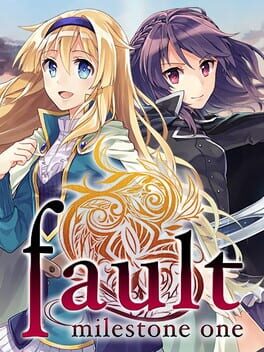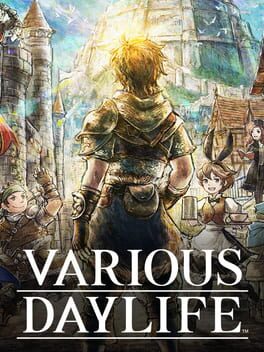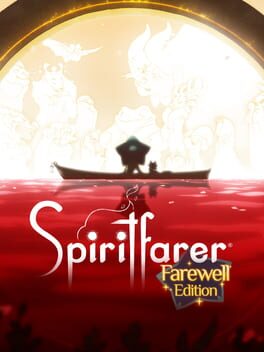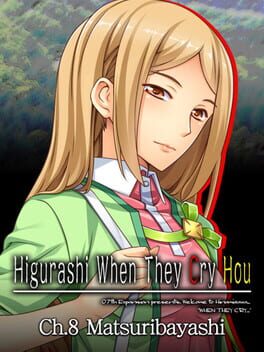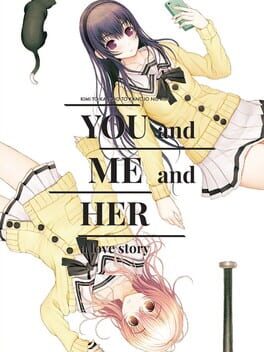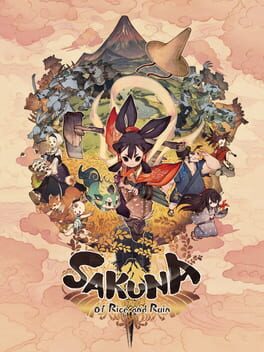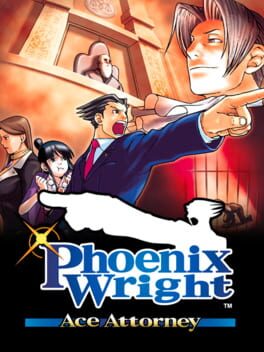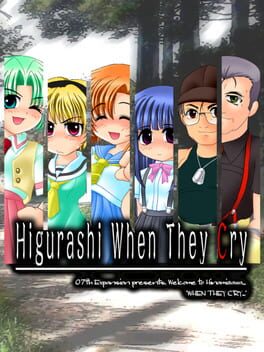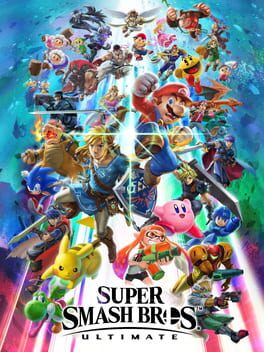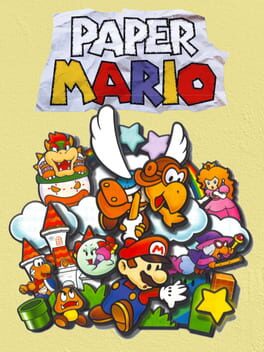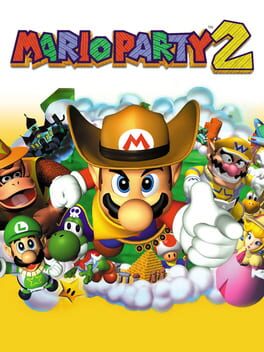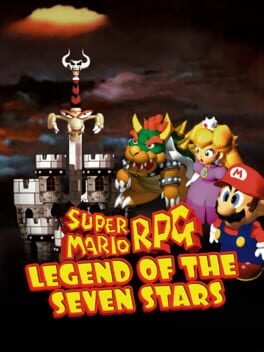290 reviews liked by Frick
Fault Milestone One
2013
I am a bit conflicted on this novel, here and now. I didn't go in expecting all that much and actually was a bit surprised by some of the depth and quality of the writing and art, but the structure and length of the novel left me feeling quite dissatisfied by the end.
In terms of what's good, I love the clean, colorful style with expressive characters and frequent, gorgeous CGs. I can imagine that some might find the fantasy designs a bit on the tropey anime style, but I'm kind of a sucker for this stuff. And ignoring that suspicion, I do think a lot of effort and fun shine through in it all.
From the story side, I was surprised by the fact that this was really more of a science-fantasy tale — at least for this part of the series. I imagine that might have actually been in the description of the game, but I read that a while before actually playing it, and most of my decision making on what VNs to play is based on the art. So... 😅
In any case, I thought there were a lot of interesting elements at play here, and it went into in moderated detail on them: complex but conscious it was also a fantasy tale — so not too much concentrated Science speak. The world presented is fairly novel in design, as far as what I've read, with a lot of promising interplay between the fantastical, technological, and socio-political elements. Then it uses those elements fairly effectively to create depth to the character dramas that are the core of the story.
At its best moments, I found it to be a very touching and heartfelt episode. The character writing was often engaging and even entertaining in the lighter scenes, and the personalities expressing themselves were layered and likable individuals. So there really is quite a lot good in the game. In fact, I'm definitely intending on continuing with the series...
However, in the context of this title on its own, the structural issues are a bit of a pain point. To put it simply, what's here feels like the opening of a central narrative plus a side story. Without reading more, it's hard to say exactly how relevant the later 2/3rds of the novel will be to be the central thread. Those 2/3rds are a good story in their own right and definitely help build the world as a whole, but the way it transitions to that thread feels like it stopped and intentionally hit "pause" on the main objective.
And that really doesn't have as much to do with the plot setup of the story so much as how the expectations are communicated to the reader. To avoid spoilers I'll be vague but essentially it was a problem of showing the reader a more direct route to continue the narrative, then electing to take a detour. One that made sense for the characters to take given their values and personalities, but a detour nonetheless. If that more direct route had never been presented as a possibility — or presented at a later time — then I probably would be thinking of this as just an interesting first episode in an adventure instead.
(I could imagine other ways to solve my issue as well, that's just the method I first thought of)
Fault Milestone One's narrative structure is just a little bit too off for me to ignore, and that's what kinda frustrates me. When I get to the next chapters, I'll know whether or not I really recommend the series, but if nothing else, there is a neat little science-fantasy story here. I just wouldn't prioritize it if you have more interesting titles on your backlog.
In terms of what's good, I love the clean, colorful style with expressive characters and frequent, gorgeous CGs. I can imagine that some might find the fantasy designs a bit on the tropey anime style, but I'm kind of a sucker for this stuff. And ignoring that suspicion, I do think a lot of effort and fun shine through in it all.
From the story side, I was surprised by the fact that this was really more of a science-fantasy tale — at least for this part of the series. I imagine that might have actually been in the description of the game, but I read that a while before actually playing it, and most of my decision making on what VNs to play is based on the art. So... 😅
In any case, I thought there were a lot of interesting elements at play here, and it went into in moderated detail on them: complex but conscious it was also a fantasy tale — so not too much concentrated Science speak. The world presented is fairly novel in design, as far as what I've read, with a lot of promising interplay between the fantastical, technological, and socio-political elements. Then it uses those elements fairly effectively to create depth to the character dramas that are the core of the story.
At its best moments, I found it to be a very touching and heartfelt episode. The character writing was often engaging and even entertaining in the lighter scenes, and the personalities expressing themselves were layered and likable individuals. So there really is quite a lot good in the game. In fact, I'm definitely intending on continuing with the series...
However, in the context of this title on its own, the structural issues are a bit of a pain point. To put it simply, what's here feels like the opening of a central narrative plus a side story. Without reading more, it's hard to say exactly how relevant the later 2/3rds of the novel will be to be the central thread. Those 2/3rds are a good story in their own right and definitely help build the world as a whole, but the way it transitions to that thread feels like it stopped and intentionally hit "pause" on the main objective.
And that really doesn't have as much to do with the plot setup of the story so much as how the expectations are communicated to the reader. To avoid spoilers I'll be vague but essentially it was a problem of showing the reader a more direct route to continue the narrative, then electing to take a detour. One that made sense for the characters to take given their values and personalities, but a detour nonetheless. If that more direct route had never been presented as a possibility — or presented at a later time — then I probably would be thinking of this as just an interesting first episode in an adventure instead.
(I could imagine other ways to solve my issue as well, that's just the method I first thought of)
Fault Milestone One's narrative structure is just a little bit too off for me to ignore, and that's what kinda frustrates me. When I get to the next chapters, I'll know whether or not I really recommend the series, but if nothing else, there is a neat little science-fantasy story here. I just wouldn't prioritize it if you have more interesting titles on your backlog.
Fault Milestone One
2013
A very odd game to me. The beginning caught my immediate interest with how bombastic it was and how indulgent it handed out CGs. I was hooked! Then came a great lull as the game got lost in its own world building, where every conversation felt like its sole purpose was to explain the magic system in stilted explanations. It was a trudge for a good while, but eventually the crux of the story got introduced with a slow and meandering build up. I wasn't sure at first about the themes it presented because they felt heavy handed and clumsy, but somehow, out of nowhere, the conclusion was able to tie it all together in a very satisfying and emotional way. Every worry I had about the writing was made good on. The ending was not quite as bombastic as the beginning, but hooked me just as much, and made me immediately wishlist the sequel.
Fault Milestone One
2013
This VN isn't groundbreaking or anything but I was weirdly hooked by it??? Also I'm a sucker for royal bodyguard/their royal charge pairings so maybe it isn't a surprise that I was feasting.
Honestly the magic system is pretty cool and given that Gara is my favourite Warframe conceptually speaking, it's no surprise that Ritona's glass weaponry makes me hoot and holler. I don't care if it's impractical, it's COOL AS HELL
Honestly the magic system is pretty cool and given that Gara is my favourite Warframe conceptually speaking, it's no surprise that Ritona's glass weaponry makes me hoot and holler. I don't care if it's impractical, it's COOL AS HELL
Various Daylife
2019
Spiritfarer is a game that can be broken down into 2 pieces. There's the story heavy, character driven narrative with excellent writing and character design, and then there is a poorly fleshed out and implemented material grind so you can create the things to make the different characters happy. My issues with the game rest entirely on the latter.
Unlike Minecraft, Stardew, or any of the recent games with crafting shoved into the middle of it, Spiritfarer doesn't ever give you a reason to craft anything if it's not just to check some item off of a quest log. Despite having elements of a Metroidvania (meaning you can only pass certain barriers once you've gotten certain upgrades) the game leaves no room for missing something or breaking the sequence that the developers want you to follow. The islands you'll visit are all over the place, but the game clearly expects you to visit them in some linear fashion. This becomes apparent when you miss even one thing, and suddenly every quest and upgrade seems to be locked behind this one character or material you passed over. This is not the make of a good open world game where players will carve their own paths and get distracted by exploration.
Unlike Minecraft, Stardew, or any of the recent games with crafting shoved into the middle of it, Spiritfarer doesn't ever give you a reason to craft anything if it's not just to check some item off of a quest log. Despite having elements of a Metroidvania (meaning you can only pass certain barriers once you've gotten certain upgrades) the game leaves no room for missing something or breaking the sequence that the developers want you to follow. The islands you'll visit are all over the place, but the game clearly expects you to visit them in some linear fashion. This becomes apparent when you miss even one thing, and suddenly every quest and upgrade seems to be locked behind this one character or material you passed over. This is not the make of a good open world game where players will carve their own paths and get distracted by exploration.
This review contains spoilers
i'm not entirely sure how i feel about matsuribayashi. it's ok. i think it's telling that it took me the second longest out of any higurashi chapter to actually finish (about a month and a half), after onikakushi (5 months), which I almost but not quite outright disliked.
It was a Slog. I have a big aversion to stories that are just way too long for their own good, but the thing is up until now I genuinely felt that Higurashi managed to keep things fresh and interesting enough this massive sprawling length never became a detriment. That's not to say Ryukishi isnt way too verbose and repetitive for his own good, but on the whole every instalment felt like a cool and interesting twist on the Higurashi formula with its own distinct atmosphere, without needing to pull crazy genre shifts or resort to gimmicks. Even the unnerving creeping sense of doom of Watanagashi is very different to the tragic descent into madness of Meakashi, for instance.
Matsuribayashi... to be honest, I did not feel accomplished this. For sure, it's a new type of story for Higurashi, more of an actiony conspiracy theory with a dash of politics. But while perhaps new for Higurashi it feels like a fairly generic story in general. Stuff like 'the games club manage to successfully wage guerilla warfare against hardened mercenaries' is easy to criticise on the basis of unrealism - I don't personally think unrealism or being shonen-esque an inherently bad thing, but it feels weird and off for the kind of story Higurashi has been up til now, and especially by comparison seems like a cheap resolution.
Now, I get that this is a deliberate bait and switch in a sense. Ryukishi offers you a psychological horror where you can trust nobody full of the threat of monsters at every turn, and then gradually takes it apart to promote trusting your friends, working together with your community, extending grace even to the monsters. I get the reasons why it's being done, I get there's a thematic point to Scooby Doo-ing it all. But the sticking point for me is that I feel like the story Higurashi turns into is a lot less interesting than the one it began as.
I'm certainly not against these kinds of bait and switches (ask me why Hell Bent from Doctor Who is one of my favourite pieces of fiction ever). But the crucial thing for me is that the story it ends up as should be just as, if not more interesting than what was promised, or at least more satisfying (even if the initial story has more of an allure of deep lore and shocking reveals). But I don't know, I... just don't feel like creepy rural horror mystery descending into action thriller is an interesting turn of events. And ironically even though Ryukishi justifies the switch by saying that Higurashi's worldview is a nonviolent one, it still turns into the kind of story where the primary means of solving problems IS through action (if not actually killing): breaking into the bad guys' base with guns.
Now, with all that said, it's not a bad ending. None of the narrative decisions it makes are bad. It's no Rise of Skywalker, making such actively ridiculous choices the promise of the previous entries is ruined. It has good moments, and Takano is such a fascinatingly sketched character. But I can't help but feel like it's largely an exercise in ticking plot boxes.
And maybe that's just an inevitable result of a finale to a mystery where the mystery has already been revealed, but part of me feels like the entire government conspiracy angle just pushes the stakes too high where the story has no choice but to shift into an action thriller to solve it. Teenagers in a horror story might be able to fight a monster, but how can they fight hardened mercenaries? There's no choice but to shift genres.
But at the end of the day the above is largely a personal gripe. Obviously I feel strongly about this and it diminished my enjoyment, but I get where Ryukishi is coming from enough I hesitate to say This Is A Flaw, and I don't want my criticms to basically just be 'you should have written a fundamentally different story'.
One thing I did think was actively bad tho and tbh has probably seriously hurt my opinion of Matusribayashi is Fragment Connecting. It felt like 90% painstakingly spoonfeeding you plot points you should already know or have been able to piece together. We often hear 'show don't tell' but I genuinely think Fragment Connecting was an example of this gone way too far; some things can be left to casual exposition. Ironically it felt like the anti-Onikakushi; it's even more useless filler but at least this time it's plot relevant! Admittedly I'd imagine this would have been a helpful refresher if you were actually reading the Higurashi instalments as they came out.
The rest of Matsuribayashi is better, although it still feels like it doesn't really pick up til Irie escapes the clinic, and even then the action scenes are kind've annoying (I did like infiltrating the clinic though). But it's fine and servicable.
Aside from that, Hanyuu still feels like a bit of a weak link characterisation wise, especially since Matsuribayashi brings a lot in to weigh on her. She's not bad or unlikeable, but I just... don't feel the same attachment to her I do the others. I think Higurashi's strength on the whole is generally the characters, and I think Matsuribayashi did a great job with fleshing ouit Takano last minute tremendously, but Hanyuu is just... I don't know.
On the whole I would say I enjoyed Higurashi, and I wouldn't say my tepid feelings for Matsuribayashi are enough to drag the rest of it down, but I also don't think I especially love it (tho I still need to read Saikoroshi). Keeping me engrossed enough to sit through one million words and eight arcs is an impressive feat in itself, and I'll always have a soft spot for the characters, but I don't know that this will be something that stays with me. But my feelings about Matsuribayashi are in flux even now so I guess we will see.
It was a Slog. I have a big aversion to stories that are just way too long for their own good, but the thing is up until now I genuinely felt that Higurashi managed to keep things fresh and interesting enough this massive sprawling length never became a detriment. That's not to say Ryukishi isnt way too verbose and repetitive for his own good, but on the whole every instalment felt like a cool and interesting twist on the Higurashi formula with its own distinct atmosphere, without needing to pull crazy genre shifts or resort to gimmicks. Even the unnerving creeping sense of doom of Watanagashi is very different to the tragic descent into madness of Meakashi, for instance.
Matsuribayashi... to be honest, I did not feel accomplished this. For sure, it's a new type of story for Higurashi, more of an actiony conspiracy theory with a dash of politics. But while perhaps new for Higurashi it feels like a fairly generic story in general. Stuff like 'the games club manage to successfully wage guerilla warfare against hardened mercenaries' is easy to criticise on the basis of unrealism - I don't personally think unrealism or being shonen-esque an inherently bad thing, but it feels weird and off for the kind of story Higurashi has been up til now, and especially by comparison seems like a cheap resolution.
Now, I get that this is a deliberate bait and switch in a sense. Ryukishi offers you a psychological horror where you can trust nobody full of the threat of monsters at every turn, and then gradually takes it apart to promote trusting your friends, working together with your community, extending grace even to the monsters. I get the reasons why it's being done, I get there's a thematic point to Scooby Doo-ing it all. But the sticking point for me is that I feel like the story Higurashi turns into is a lot less interesting than the one it began as.
I'm certainly not against these kinds of bait and switches (ask me why Hell Bent from Doctor Who is one of my favourite pieces of fiction ever). But the crucial thing for me is that the story it ends up as should be just as, if not more interesting than what was promised, or at least more satisfying (even if the initial story has more of an allure of deep lore and shocking reveals). But I don't know, I... just don't feel like creepy rural horror mystery descending into action thriller is an interesting turn of events. And ironically even though Ryukishi justifies the switch by saying that Higurashi's worldview is a nonviolent one, it still turns into the kind of story where the primary means of solving problems IS through action (if not actually killing): breaking into the bad guys' base with guns.
Now, with all that said, it's not a bad ending. None of the narrative decisions it makes are bad. It's no Rise of Skywalker, making such actively ridiculous choices the promise of the previous entries is ruined. It has good moments, and Takano is such a fascinatingly sketched character. But I can't help but feel like it's largely an exercise in ticking plot boxes.
And maybe that's just an inevitable result of a finale to a mystery where the mystery has already been revealed, but part of me feels like the entire government conspiracy angle just pushes the stakes too high where the story has no choice but to shift into an action thriller to solve it. Teenagers in a horror story might be able to fight a monster, but how can they fight hardened mercenaries? There's no choice but to shift genres.
But at the end of the day the above is largely a personal gripe. Obviously I feel strongly about this and it diminished my enjoyment, but I get where Ryukishi is coming from enough I hesitate to say This Is A Flaw, and I don't want my criticms to basically just be 'you should have written a fundamentally different story'.
One thing I did think was actively bad tho and tbh has probably seriously hurt my opinion of Matusribayashi is Fragment Connecting. It felt like 90% painstakingly spoonfeeding you plot points you should already know or have been able to piece together. We often hear 'show don't tell' but I genuinely think Fragment Connecting was an example of this gone way too far; some things can be left to casual exposition. Ironically it felt like the anti-Onikakushi; it's even more useless filler but at least this time it's plot relevant! Admittedly I'd imagine this would have been a helpful refresher if you were actually reading the Higurashi instalments as they came out.
The rest of Matsuribayashi is better, although it still feels like it doesn't really pick up til Irie escapes the clinic, and even then the action scenes are kind've annoying (I did like infiltrating the clinic though). But it's fine and servicable.
Aside from that, Hanyuu still feels like a bit of a weak link characterisation wise, especially since Matsuribayashi brings a lot in to weigh on her. She's not bad or unlikeable, but I just... don't feel the same attachment to her I do the others. I think Higurashi's strength on the whole is generally the characters, and I think Matsuribayashi did a great job with fleshing ouit Takano last minute tremendously, but Hanyuu is just... I don't know.
On the whole I would say I enjoyed Higurashi, and I wouldn't say my tepid feelings for Matsuribayashi are enough to drag the rest of it down, but I also don't think I especially love it (tho I still need to read Saikoroshi). Keeping me engrossed enough to sit through one million words and eight arcs is an impressive feat in itself, and I'll always have a soft spot for the characters, but I don't know that this will be something that stays with me. But my feelings about Matsuribayashi are in flux even now so I guess we will see.
Journey
2012
The meaning behind the story of Journey, according to developers, is to be kept vague and somewhat secretive. Maybe this is a way to force the player to come up with their own meaning for it, as art typically asks of you, or maybe it’s because the meaning of Journey is just that, a journey.
There’s not much to read into. It’s a short journey, filled with a beautiful environment, and annoying obstacles. I understand that these cloth dragons represent shortcomings in your journey, as every adventure has, but I feel like it would’ve been better if there was one clear focus in the game.
Instead of a relaxing, pretty experience throughout, it becomes a test of patience for about 20 minutes attempting to guide yourself to the finish line without getting staggered by the cloth dragons.
I don’t have much to say about this game, I feel about the same about it that I do with similar games. For some people this might be a life changing experience, hitting home for you in a deeply personal way. For others, like me, it’s just another pretty game. 6/10.
There’s not much to read into. It’s a short journey, filled with a beautiful environment, and annoying obstacles. I understand that these cloth dragons represent shortcomings in your journey, as every adventure has, but I feel like it would’ve been better if there was one clear focus in the game.
Instead of a relaxing, pretty experience throughout, it becomes a test of patience for about 20 minutes attempting to guide yourself to the finish line without getting staggered by the cloth dragons.
I don’t have much to say about this game, I feel about the same about it that I do with similar games. For some people this might be a life changing experience, hitting home for you in a deeply personal way. For others, like me, it’s just another pretty game. 6/10.
Journey
2012
This review contains spoilers
The comparison to Doki Doki is tacky and overdone considering this predates it by about 4 years, but unavoidable.
When I played DDLC in 2017 I heard the ~whispers~ of this ~other game~ that ~wasn't officially translated at the time~. I saw some screenshots from a certain happy birthday, and moved on with life.
Now 6.5 years later with more VNs under my belt, more life lived, and with memories hazy enough to have not quite remembered being spoiled fully, I rounded back onto reading Totono.
It was certainly an experience worth that wait, and a great of example of using the meta of your genre to tell an extremely effective story. Totono builds its main heroines wonderfully over the course of normal play, making the choice between them feel hard to make even before the curtain begins to get pulled back. Being railroaded into Miyuki naturally makes you feel bad for Aoi, which leads you into her route, which leads to abandoning Miyuki's, which leads to everything falling apart as it does. Despite me pushing in Aoi's direction as hard as possible as soon as I had the ability, they still brought me back to almost picking Miyuki in the end. The emphasis placed on your choice really did make it hard to make in a wonderful way, no saves, no reloads, just a binary with no right answer capping off an extremely memorable commentary on the genre.
When I played DDLC in 2017 I heard the ~whispers~ of this ~other game~ that ~wasn't officially translated at the time~. I saw some screenshots from a certain happy birthday, and moved on with life.
Now 6.5 years later with more VNs under my belt, more life lived, and with memories hazy enough to have not quite remembered being spoiled fully, I rounded back onto reading Totono.
It was certainly an experience worth that wait, and a great of example of using the meta of your genre to tell an extremely effective story. Totono builds its main heroines wonderfully over the course of normal play, making the choice between them feel hard to make even before the curtain begins to get pulled back. Being railroaded into Miyuki naturally makes you feel bad for Aoi, which leads you into her route, which leads to abandoning Miyuki's, which leads to everything falling apart as it does. Despite me pushing in Aoi's direction as hard as possible as soon as I had the ability, they still brought me back to almost picking Miyuki in the end. The emphasis placed on your choice really did make it hard to make in a wonderful way, no saves, no reloads, just a binary with no right answer capping off an extremely memorable commentary on the genre.
What an interesting game. I wish I could love it.
I picked this game up quite a while ago because it looked beautiful and the idea of a rice farming game with platforming and combat was too weird to pass up. Of course, I then never played it, because it takes me an eternity to get around to anything. Once I finally started the game, though...
In my first two hours, I got to the first winter. Planting the rice is nice, I like the slow and free-form system to it, and the fact that the camera is always moving and doing its best to make sure you can't move in perfectly straight lines makes it feel natural unlike basically any farming game. Tending the rice seemed more and more complicated the more I thought about it, looking at all the bars and numbers and such, which was interesting... but none of it was explained at all, so it was also overwhelming. Only after getting to the final stage of growth did I realize I was supposed to be talking to the big guy every day to get the basic information, which is odd considering how much other information the game forces onto you with extensive dialogue and cutscenes. After harvesting the rice, I then found out that you must thresh the rice... which was alright. The repetitive but satisfying sequence of inputs to do that combined with the satisfying animation and sound, topped off with the relatively fast pace of progress leads to a sort of zen feeling. It took me 45 seconds. Less fine is the hulling. Up, down, up, down, up, down, nothing else, nothing satisfying about it, and it took several minutes to get white rice. Not exactly what I would call fun.
Then there's the combat. While the idea was interesting, the execution leaves me wondering why it's even included at all, aside from thematic relevance. I can see what they were going for, and they failed on every level. Clearly the goal was to have a fast paced beat-em-up style of combat where you can blast through small enemies in great numbers and need to work a little harder on large enemies, but nearly all of the combat system is redundant, the pace is stiff and inconsistent, the movement is slow, and the enemies are a total nuisance.
The combat pretends to have depth by giving you some options for different move types, but fails to account for the fact that mashing the light attack button is all you ever need. It pretends to be skill based by requiring you to dodge and making the dodge move extra flashy, but makes you completely invincible for the entire dodge animation, and while the game does apparently have a parry, it didn't ever tell me it existed and I couldn't figure out how it worked. Directional inputs change your moves, usually into something worse or undesirable, and even a 1% tilt on the stick is enough to trigger it. The insane direction sensitivity also makes it easy to accidentally start attacking in the wrong direction because of stick bounce, which is then made worse by it being impossible to change direction mid-combo, forcing you to either find a way to cancel, hope something walks into you, or let the animation finish. It kills its own pace by putting insanely long recovery times on several of your moves - sometimes over a full second - and making the enemies invincible when they're downed, forcing you to wait several seconds for them to get back up so you can deliver the last hit. Some enemies have little to no telegraph for their attacks, or have projectiles that are extremely difficult to see if there's anything else on the screen. Nothing about this combat is fun to me, and to top it all off, the game also creates difficulty not by making the enemies actually do interesting things - no, they all have two or three moves and spend most of their time not attacking - it just gives them bigger health bars and throws more of them at you. Ironic that the developers said on record that the rice planting works the way it does because "[they] didn't want it to be a process that you could finish with the push of a button" while also making the combat be exactly that.
This all boiled over when I reached the first boss fight, which was just a bigger version of a normal enemy with an obscenely large health bar... and infinitely respawning smaller enemies, including a smaller version of itself, and a ranged enemy. Unless they all got bunched up in the same spot, it was very easy to run into an attack, making taking damage an inevitability that felt unfair and broken rather than challenging or difficult, and of course the fight wasn't fun at all since it's no different from any other, just spam light attack and dodge whenever an attack winds up - and by "dodge" I mean the raiment, because the actual dash move is bound to double tapping a direction on the analog stick, doesn't make you invincible, and barely moves you at all, making it 300% useless. All of that combined with the low drop rates of myriad items that I was just starting to figure out were required to progress made it quite clear that the only thing the combat adds to the game is a dull grind, and I'm sure it wasn't meant to be that way. Beyond disappointing. I would prefer if the game had no combat at all over this fundamentally broken and wildly unpolished system, thematic relevance be damned.
But I kept playing.
Thankfully, most of my issues with the rice side of the game were noticeably improved by the second year. It seems intentional, because the quick growth of skills and unlocking new abilities both figuratively and literally reflect Sakuna's growth, which is the real reason I kept playing. I do still wish the hulling took less time though, and I honestly don't understand the point of the hand thresher, because it doesn't make it any faster, it just makes it less fun by simplifying the input to a basic right-left alternation instead of down-right-left which can be performed as a half-circle. The rice pounder, for its part, sucks in its own way because it only makes the hulling process even more boring in exchange for a minuscule time savings. Everything else is good though, because things get tangibly faster and better with every season, absolutely nailing the sense of progression and satisfaction, and the depth of fertilizing and tending the crop went from overwhelming to intuitive and fun very quickly... at least, on a basic level. There are a lot of variables at play for every step, and balancing those variables just right apparently makes the rice turn out better, but I never really got the hang of truly maximizing it. Honestly, I would probably enjoy a dedicated farming game that plays like this.
My problems with the combat, however, never got better at all, so I turned the combat difficulty down because it sucks, I hate it, it's not rewarding, I get nothing from it, and it's not even relevant. I didn't even notice a difference with the difficulty lowered, I'm not convinced it changed anything at all. If anything, it all got worse with time, because all but one of the bosses are just bigger versions of regular enemies with giant health bars and infinitely respawning nuisances, and the platforming became obnoxious. Poison gas, falling rocks that you can't easily dodge due to the dodge move being bound stupidly to double tapping the left stick, big floating balls of water that you have to wait around for and swim in that make you move in slow motion that also harass you on the ground during combat... I suppose I could have spent a few years just tending the rice without doing more than the bare minimum of combat so I could overlevel and trivialize the rest of the combat, but that seemed like choosing between a rock and a hard place.
I did at least eventually kind of figure out the parry. It seems to be similar to Metal Gear Rising, where you move the stick towards the incoming attack and press a button with perfect timing, but I never fully understood it, because even as I got more and more consistent with it, I would still often get hit anyway, regardless of how good my timing was, and other times I would parry successfully without trying to, not to mention the times where trying to parry triggered a dash attack instead. As the game progressed and I got more special moves, I could at least start to pretend the combat had something to offer by varying up my attacks, but mashing light attack never stopped being optimal.
I never knew how much of a story there was in this game since I pretty much bought it entirely on the concept of rice farming and the combat, but the story quickly became the best part. Not because it's particularly groundbreaking or amazingly written or anything, it just happens to appeal to me... after switching to the Japanese voices, that is. I tried the English ones, I really did, but the English voices in this game have the same problem that turn me off of almost every other English dub of Japanese media: Painfully overacted, feels faker than fake, and at least one of the voice actors puts on an incredibly grating voice. (This is often true for even a lot of native English media as well, and dubs from other sources of course, it's just most common with Japanese stuff in my experience.)
Sakuna is cute, but very stupid, and a massive brat. Watching her grow up over the course of the game, coming to terms with being made to get her hands dirty and work the field, slowly forming connections with the children of men she previously looked down upon, finding her place in the world, I like that. Also she can pet a cat, which is nice. All the other characters are charming in their own ways too, and I always enjoyed seeing them interact and doing their side quests. And rest assured, there were plenty of opportunities to see the characters interact, because short little scenes are peppered in everywhere - many of which also trigger new side quests - to keep things fresh, which I think is this game's biggest strength. All those little charming scenes keep the pace moving slowly forward, which does a lot to prevent the game from getting dull when you're not farming. Some kappa even show up. I like the kappa.
It also helps that the game creates an impeccable mood with its art, music, and sound design. Not one of these things stands particularly strongly alone, but together they are more than the sum of their parts. The character designs are wonderful and the world is beautiful to look at, the soundscapes are fantastic, and the music is perfectly composed to elevate the experience without taking undue precedence or becoming repetitive and boring. The only nitpicks I have are that the soundscapes are a lot louder than they could have been, sometimes making it quite a shock when you step into a building and it all suddenly stops, and the bloom is absolutely ridiculous at times... but I can't decide how I really feel about either of those things. The sound being so loud seems bad when I describe it and the feeling of it suddenly stopping is definitely weird, but it never really bothered me. I also turned the bloom off and on multiple times, and sometimes it's better off, other times it's better on, and that's coming from me, an avid bloom despiser.
But then it just... keeps going... and going... and going. Story progression for most of the game is locked behind your "exploration level", which you increase by completing objectives in the different levels, which means you have to spend more time in combat. Some of these objectives are very easy, some aren't, some are just plain annoying, and none are entertaining. After a certain point, you even discover a dungeon or gauntlet level with 100 floors, because apparently the developers were really confident that the combat was good enough that it would be fun for that long. Around that point, I started feeling the drag, because I always knew how much combat was waiting for me, along with more platforming that slowly but surely continued to get worse and worse, even though I just wanted to farm rice and enjoy the atmosphere. I will say, though, at least the first few floors of the dungeon were the best combat the game had shown me yet, because it was almost all ground enemies bunched together in great numbers, so there was always something to hit and I was constantly knocking enemies into each other. I would almost call it satisfying, if not for the fact that the combat still has no depth, no enemy variety, brain dead AI, stiff and clunky controls, and nonsensical recovery times.
Then it continues. Even still, it continues. That wasn't even the halfway point.
And after getting past the halfway point, when every single element of the combat and the enemy variety has been well and truly wrung out for every last drop, it recycles all of the same things even more, because for some reason, the developers really thought that a game of this scale with such a tiny enemy variety and combat that barely works at all could stretch out for 30 hours. Making things worse for me specifically, I triggered the midway point literally on the day my rice was ready to take inside and finish up, not knowing that the midway point negates all your work, so I ended up losing the whole harvest at the finish line and having to deal with lower stats than I could have had during a part of the game that lowers your stats, AND throws you at enemies with higher stats at the same time... including one that heals them all, and given how strong some of them are, it's entirely possible to be unable to deal damage faster than they heal. Oh, and just for good measure, enemies come in much higher quantities on top of it all.
This game has its flaws and its strengths, but it seems to go out of its way to hide its strengths, and not only highlight the flaws, but focus on them, almost glorify them, because it's quite clear the developers lacked the experience to create the game they wanted, and lacked the assistance to figure out the problem before it was too late. This is an 8-10 hour game stretched out far beyond its limits that actively works against itself the whole way through, making absolutely certain that the experience is worse than it should be.
It is at this point that I began to actively dislike playing the game.
But despite my growing disdain, I continued. A small and further shrinking part of me remained compelled to see this game through to the end, and once I got there, I was happy. Not just because it was finally over, but because the conclusion of the game was genuinely satisfying. I do love me a bit of the ol' indomitable human spirit. As the credits rolled, I put the controller down and smiled. That's the true strength of this game. It made me happy.
If every part of Sakuna was charming, endearing, enjoyable, satisfying, and rewarding, except for the gameplay, then it's a failure of a video game. It failed to deliver the experience that it was meant to, and yet, it delivered in so many other ways. The look, the sound, the style, the atmosphere, the charm, the love that clearly went into bringing it all to life... I truly believe that Sakuna would have been better made as an anime instead of a video game, but alas, Edelweiss is only a two person team. Wouldn't you know it though, there is a Sakuna manga that tells a different story, and it's wonderful.
The fact that Edelweiss is a two person team makes my grievances feel so much worse, because for all my complaining, all my criticism, all my vitriol that I believe is entirely valid and true... I still want to applaud the developers for what they accomplished. It is a genuine work of art that they should be proud of. If the gameplay is fun for people other than me, that's even better, I don't mind being a stick in the mud. If its massive success in Japan is anything to go by - half a million sales in its first month, nominated for five separate awards at the Famitsu Dengeki Game Awards 2020, including game of the year, and winning three of them (but not game of the year), plus an award at CEDEC 2021, and another from the Playstation Partner Awards - I probably am being a stick in the mud. I don't hate the game at all, and I'm not trying to bully or insult the developers with my criticism, I just wish the game was better so I could have loved it in full.
They have said that they want to make a sequel one day, and I sincerely hope that if that day comes, they can learn from the problems in this game, get some outside help if they need it, and take feedback early in development to ensure that the combat can shine as bright as the rest of the world does. Look at Dust: An Elysian Tail, for instance, another 2D side scrolling action RPG platformer, released eight years earlier and created almost entirely by one person. Devil May Cry it is not, but the combat is leagues ahead of Sakuna.
The world that Edelweiss have created here is a beautiful one that I would love to inhabit again one day, be it through a better video game, or through any other medium. But I will not be playing this particular game again.
In the end, Sakuna is for me the epitome of the phrase "I really wanted to love this".
(from my web zone: https://kerosyn.link/sakuna-the-rice-is-ruined/)
I picked this game up quite a while ago because it looked beautiful and the idea of a rice farming game with platforming and combat was too weird to pass up. Of course, I then never played it, because it takes me an eternity to get around to anything. Once I finally started the game, though...
In my first two hours, I got to the first winter. Planting the rice is nice, I like the slow and free-form system to it, and the fact that the camera is always moving and doing its best to make sure you can't move in perfectly straight lines makes it feel natural unlike basically any farming game. Tending the rice seemed more and more complicated the more I thought about it, looking at all the bars and numbers and such, which was interesting... but none of it was explained at all, so it was also overwhelming. Only after getting to the final stage of growth did I realize I was supposed to be talking to the big guy every day to get the basic information, which is odd considering how much other information the game forces onto you with extensive dialogue and cutscenes. After harvesting the rice, I then found out that you must thresh the rice... which was alright. The repetitive but satisfying sequence of inputs to do that combined with the satisfying animation and sound, topped off with the relatively fast pace of progress leads to a sort of zen feeling. It took me 45 seconds. Less fine is the hulling. Up, down, up, down, up, down, nothing else, nothing satisfying about it, and it took several minutes to get white rice. Not exactly what I would call fun.
Then there's the combat. While the idea was interesting, the execution leaves me wondering why it's even included at all, aside from thematic relevance. I can see what they were going for, and they failed on every level. Clearly the goal was to have a fast paced beat-em-up style of combat where you can blast through small enemies in great numbers and need to work a little harder on large enemies, but nearly all of the combat system is redundant, the pace is stiff and inconsistent, the movement is slow, and the enemies are a total nuisance.
The combat pretends to have depth by giving you some options for different move types, but fails to account for the fact that mashing the light attack button is all you ever need. It pretends to be skill based by requiring you to dodge and making the dodge move extra flashy, but makes you completely invincible for the entire dodge animation, and while the game does apparently have a parry, it didn't ever tell me it existed and I couldn't figure out how it worked. Directional inputs change your moves, usually into something worse or undesirable, and even a 1% tilt on the stick is enough to trigger it. The insane direction sensitivity also makes it easy to accidentally start attacking in the wrong direction because of stick bounce, which is then made worse by it being impossible to change direction mid-combo, forcing you to either find a way to cancel, hope something walks into you, or let the animation finish. It kills its own pace by putting insanely long recovery times on several of your moves - sometimes over a full second - and making the enemies invincible when they're downed, forcing you to wait several seconds for them to get back up so you can deliver the last hit. Some enemies have little to no telegraph for their attacks, or have projectiles that are extremely difficult to see if there's anything else on the screen. Nothing about this combat is fun to me, and to top it all off, the game also creates difficulty not by making the enemies actually do interesting things - no, they all have two or three moves and spend most of their time not attacking - it just gives them bigger health bars and throws more of them at you. Ironic that the developers said on record that the rice planting works the way it does because "[they] didn't want it to be a process that you could finish with the push of a button" while also making the combat be exactly that.
This all boiled over when I reached the first boss fight, which was just a bigger version of a normal enemy with an obscenely large health bar... and infinitely respawning smaller enemies, including a smaller version of itself, and a ranged enemy. Unless they all got bunched up in the same spot, it was very easy to run into an attack, making taking damage an inevitability that felt unfair and broken rather than challenging or difficult, and of course the fight wasn't fun at all since it's no different from any other, just spam light attack and dodge whenever an attack winds up - and by "dodge" I mean the raiment, because the actual dash move is bound to double tapping a direction on the analog stick, doesn't make you invincible, and barely moves you at all, making it 300% useless. All of that combined with the low drop rates of myriad items that I was just starting to figure out were required to progress made it quite clear that the only thing the combat adds to the game is a dull grind, and I'm sure it wasn't meant to be that way. Beyond disappointing. I would prefer if the game had no combat at all over this fundamentally broken and wildly unpolished system, thematic relevance be damned.
But I kept playing.
Thankfully, most of my issues with the rice side of the game were noticeably improved by the second year. It seems intentional, because the quick growth of skills and unlocking new abilities both figuratively and literally reflect Sakuna's growth, which is the real reason I kept playing. I do still wish the hulling took less time though, and I honestly don't understand the point of the hand thresher, because it doesn't make it any faster, it just makes it less fun by simplifying the input to a basic right-left alternation instead of down-right-left which can be performed as a half-circle. The rice pounder, for its part, sucks in its own way because it only makes the hulling process even more boring in exchange for a minuscule time savings. Everything else is good though, because things get tangibly faster and better with every season, absolutely nailing the sense of progression and satisfaction, and the depth of fertilizing and tending the crop went from overwhelming to intuitive and fun very quickly... at least, on a basic level. There are a lot of variables at play for every step, and balancing those variables just right apparently makes the rice turn out better, but I never really got the hang of truly maximizing it. Honestly, I would probably enjoy a dedicated farming game that plays like this.
My problems with the combat, however, never got better at all, so I turned the combat difficulty down because it sucks, I hate it, it's not rewarding, I get nothing from it, and it's not even relevant. I didn't even notice a difference with the difficulty lowered, I'm not convinced it changed anything at all. If anything, it all got worse with time, because all but one of the bosses are just bigger versions of regular enemies with giant health bars and infinitely respawning nuisances, and the platforming became obnoxious. Poison gas, falling rocks that you can't easily dodge due to the dodge move being bound stupidly to double tapping the left stick, big floating balls of water that you have to wait around for and swim in that make you move in slow motion that also harass you on the ground during combat... I suppose I could have spent a few years just tending the rice without doing more than the bare minimum of combat so I could overlevel and trivialize the rest of the combat, but that seemed like choosing between a rock and a hard place.
I did at least eventually kind of figure out the parry. It seems to be similar to Metal Gear Rising, where you move the stick towards the incoming attack and press a button with perfect timing, but I never fully understood it, because even as I got more and more consistent with it, I would still often get hit anyway, regardless of how good my timing was, and other times I would parry successfully without trying to, not to mention the times where trying to parry triggered a dash attack instead. As the game progressed and I got more special moves, I could at least start to pretend the combat had something to offer by varying up my attacks, but mashing light attack never stopped being optimal.
I never knew how much of a story there was in this game since I pretty much bought it entirely on the concept of rice farming and the combat, but the story quickly became the best part. Not because it's particularly groundbreaking or amazingly written or anything, it just happens to appeal to me... after switching to the Japanese voices, that is. I tried the English ones, I really did, but the English voices in this game have the same problem that turn me off of almost every other English dub of Japanese media: Painfully overacted, feels faker than fake, and at least one of the voice actors puts on an incredibly grating voice. (This is often true for even a lot of native English media as well, and dubs from other sources of course, it's just most common with Japanese stuff in my experience.)
Sakuna is cute, but very stupid, and a massive brat. Watching her grow up over the course of the game, coming to terms with being made to get her hands dirty and work the field, slowly forming connections with the children of men she previously looked down upon, finding her place in the world, I like that. Also she can pet a cat, which is nice. All the other characters are charming in their own ways too, and I always enjoyed seeing them interact and doing their side quests. And rest assured, there were plenty of opportunities to see the characters interact, because short little scenes are peppered in everywhere - many of which also trigger new side quests - to keep things fresh, which I think is this game's biggest strength. All those little charming scenes keep the pace moving slowly forward, which does a lot to prevent the game from getting dull when you're not farming. Some kappa even show up. I like the kappa.
It also helps that the game creates an impeccable mood with its art, music, and sound design. Not one of these things stands particularly strongly alone, but together they are more than the sum of their parts. The character designs are wonderful and the world is beautiful to look at, the soundscapes are fantastic, and the music is perfectly composed to elevate the experience without taking undue precedence or becoming repetitive and boring. The only nitpicks I have are that the soundscapes are a lot louder than they could have been, sometimes making it quite a shock when you step into a building and it all suddenly stops, and the bloom is absolutely ridiculous at times... but I can't decide how I really feel about either of those things. The sound being so loud seems bad when I describe it and the feeling of it suddenly stopping is definitely weird, but it never really bothered me. I also turned the bloom off and on multiple times, and sometimes it's better off, other times it's better on, and that's coming from me, an avid bloom despiser.
But then it just... keeps going... and going... and going. Story progression for most of the game is locked behind your "exploration level", which you increase by completing objectives in the different levels, which means you have to spend more time in combat. Some of these objectives are very easy, some aren't, some are just plain annoying, and none are entertaining. After a certain point, you even discover a dungeon or gauntlet level with 100 floors, because apparently the developers were really confident that the combat was good enough that it would be fun for that long. Around that point, I started feeling the drag, because I always knew how much combat was waiting for me, along with more platforming that slowly but surely continued to get worse and worse, even though I just wanted to farm rice and enjoy the atmosphere. I will say, though, at least the first few floors of the dungeon were the best combat the game had shown me yet, because it was almost all ground enemies bunched together in great numbers, so there was always something to hit and I was constantly knocking enemies into each other. I would almost call it satisfying, if not for the fact that the combat still has no depth, no enemy variety, brain dead AI, stiff and clunky controls, and nonsensical recovery times.
Then it continues. Even still, it continues. That wasn't even the halfway point.
And after getting past the halfway point, when every single element of the combat and the enemy variety has been well and truly wrung out for every last drop, it recycles all of the same things even more, because for some reason, the developers really thought that a game of this scale with such a tiny enemy variety and combat that barely works at all could stretch out for 30 hours. Making things worse for me specifically, I triggered the midway point literally on the day my rice was ready to take inside and finish up, not knowing that the midway point negates all your work, so I ended up losing the whole harvest at the finish line and having to deal with lower stats than I could have had during a part of the game that lowers your stats, AND throws you at enemies with higher stats at the same time... including one that heals them all, and given how strong some of them are, it's entirely possible to be unable to deal damage faster than they heal. Oh, and just for good measure, enemies come in much higher quantities on top of it all.
This game has its flaws and its strengths, but it seems to go out of its way to hide its strengths, and not only highlight the flaws, but focus on them, almost glorify them, because it's quite clear the developers lacked the experience to create the game they wanted, and lacked the assistance to figure out the problem before it was too late. This is an 8-10 hour game stretched out far beyond its limits that actively works against itself the whole way through, making absolutely certain that the experience is worse than it should be.
It is at this point that I began to actively dislike playing the game.
But despite my growing disdain, I continued. A small and further shrinking part of me remained compelled to see this game through to the end, and once I got there, I was happy. Not just because it was finally over, but because the conclusion of the game was genuinely satisfying. I do love me a bit of the ol' indomitable human spirit. As the credits rolled, I put the controller down and smiled. That's the true strength of this game. It made me happy.
If every part of Sakuna was charming, endearing, enjoyable, satisfying, and rewarding, except for the gameplay, then it's a failure of a video game. It failed to deliver the experience that it was meant to, and yet, it delivered in so many other ways. The look, the sound, the style, the atmosphere, the charm, the love that clearly went into bringing it all to life... I truly believe that Sakuna would have been better made as an anime instead of a video game, but alas, Edelweiss is only a two person team. Wouldn't you know it though, there is a Sakuna manga that tells a different story, and it's wonderful.
The fact that Edelweiss is a two person team makes my grievances feel so much worse, because for all my complaining, all my criticism, all my vitriol that I believe is entirely valid and true... I still want to applaud the developers for what they accomplished. It is a genuine work of art that they should be proud of. If the gameplay is fun for people other than me, that's even better, I don't mind being a stick in the mud. If its massive success in Japan is anything to go by - half a million sales in its first month, nominated for five separate awards at the Famitsu Dengeki Game Awards 2020, including game of the year, and winning three of them (but not game of the year), plus an award at CEDEC 2021, and another from the Playstation Partner Awards - I probably am being a stick in the mud. I don't hate the game at all, and I'm not trying to bully or insult the developers with my criticism, I just wish the game was better so I could have loved it in full.
They have said that they want to make a sequel one day, and I sincerely hope that if that day comes, they can learn from the problems in this game, get some outside help if they need it, and take feedback early in development to ensure that the combat can shine as bright as the rest of the world does. Look at Dust: An Elysian Tail, for instance, another 2D side scrolling action RPG platformer, released eight years earlier and created almost entirely by one person. Devil May Cry it is not, but the combat is leagues ahead of Sakuna.
The world that Edelweiss have created here is a beautiful one that I would love to inhabit again one day, be it through a better video game, or through any other medium. But I will not be playing this particular game again.
In the end, Sakuna is for me the epitome of the phrase "I really wanted to love this".
(from my web zone: https://kerosyn.link/sakuna-the-rice-is-ruined/)
